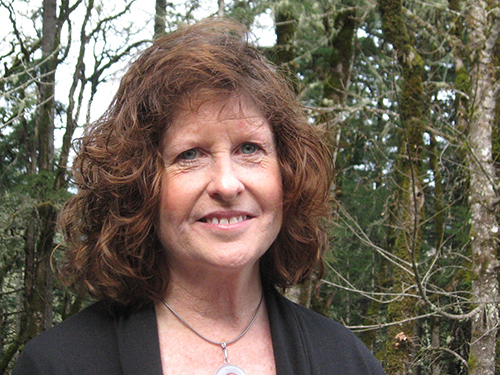Reimagining public science education: The role of lifelong free-choice learning with Dr. Lynn Dierking, Oregon State University
| Event Date: | September 17, 2020 |
|---|---|
| Speaker: | Lynn Dierking |
| Speaker Affiliation: | Oregon State University |
| Time: | 3:30 - 4:30 PM |
| Location: | Online |
| Priority: | No |
| School or Program: | Engineering Education |
| College Calendar: | Show |
Profound changes are occurring in society, disrupting current systems and institutions; these disruptions also are affecting science education practice and research. Science learning is becoming a lifelong, self-directed process, dominated by out-of-school, free-choice learning experiences. These disruptions in the science learning narrative necessitate that societies rethink what constitutes public science education in the 21st century. Rather than focusing only on schooling and university/post-secondary training, public science education needs to include meeting the lifelong science learning needs of all people, at all stages of life, wherever a person is, whenever she faces a learning need.
Lynn Dierking will discuss the scope and scale of free-choice public science learning across a range of informal (and formal contexts) by describing three recent research projects:
- SYNERGIES, a 10-year Research-Practice Partnership involving in-school and out-of-school educators, youth, parents and community members in a low-income, urban neighborhood in Portland, OR, currently funded by the US-National Science Foundation (NSF);
- Designing Our World, a 4-year NSF project with Oregon Museum of Science & Industry (OMSI) to engage girls in engineering practices, in which we embedded a research study investigating and developing a framework that describes situated identity negotiation among girls in an informal engineering education program; and,
- YeSTEM, a Science Learning+ Partnership project, focusing on youth and equity, a collaboration between the US-NSF and UK-Wellcome Trust, designed to understand from youths’ perspectives, their views on STEM, STEAM and informal science learning.
In addition, Dierking will posit the challenges faced by both practitioners and researchers attempting to promote and reform science education in more systemic and comprehensive ways. As the what, where, when, how and with whom of science learning continues to evolve, new educational practices and research approaches will be required; approaches that place the individual and her lifelong, free-choice learning at the center, rather than the periphery of the public’s lifelong science education.
Bio
Lynn D. Dierking is Sea Grant Professor in Free-Choice/Informal STEM (Science, Technology, Engineering and Mathematics) Learning, Colleges of Science and Education, Oregon State University (OSU); she has been on the faculty of the Colleges of Science and Education since 2006. Her background is in science, specifically biology and ecology, and she began her FCL career as an outdoor educator and has worked in an interdisciplinary fashion throughout her almost 50-year career. Although her focus is in out of school, lifelong free-choice learning, she also has been a middle and high school science teacher, worked in the Smithsonian Office of Educational Research, in the University of Maryland’s College of Education preparing early childhood and elementary teachers to teach science in school classrooms, and was director of a national middle school curriculum project, Science in American Life, at the National Museum of American History, Smithsonian Institution.
Dierking’s research focuses on lifelong learning, particularly free-choice, out-of-school time learning (in after-school, home-, community-based and cultural contexts), with an emphasis on youth and families, particularly those who live in poverty and may have not historically had opportunities to engage in STEM learning across their lifetime and outside of school. Dierking is the Principal Investigator/Project Director of a Research in Service to Practice NSF project, called SYNERGIES, which takes an ecosystem approach to studying and maintaining youths’ STEM interest and participation pathways in an under-resourced community in NE Portland, Oregon. Lynn publishes extensively and is on Editorial Boards for the Journal of Museum Management and Curatorship, Afterschool Matters and Connected Science Learning. Her awards include the 2010 American Alliance of Museums’ John Cotton Dana Award for Leadership and a 2016 Distinguished Contributions to Science Education through Research award from NARST, a global organization improving science education through research.

